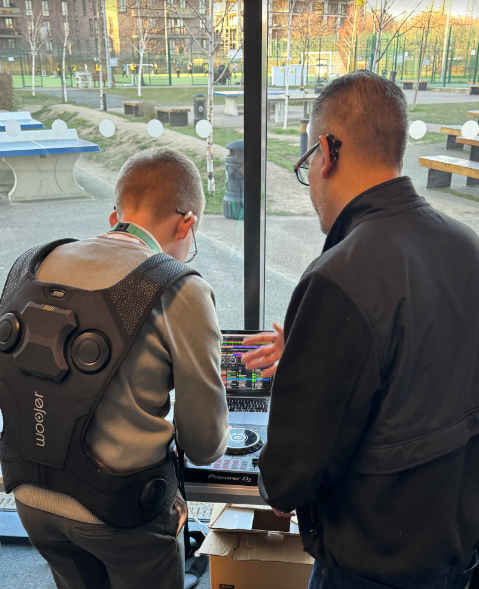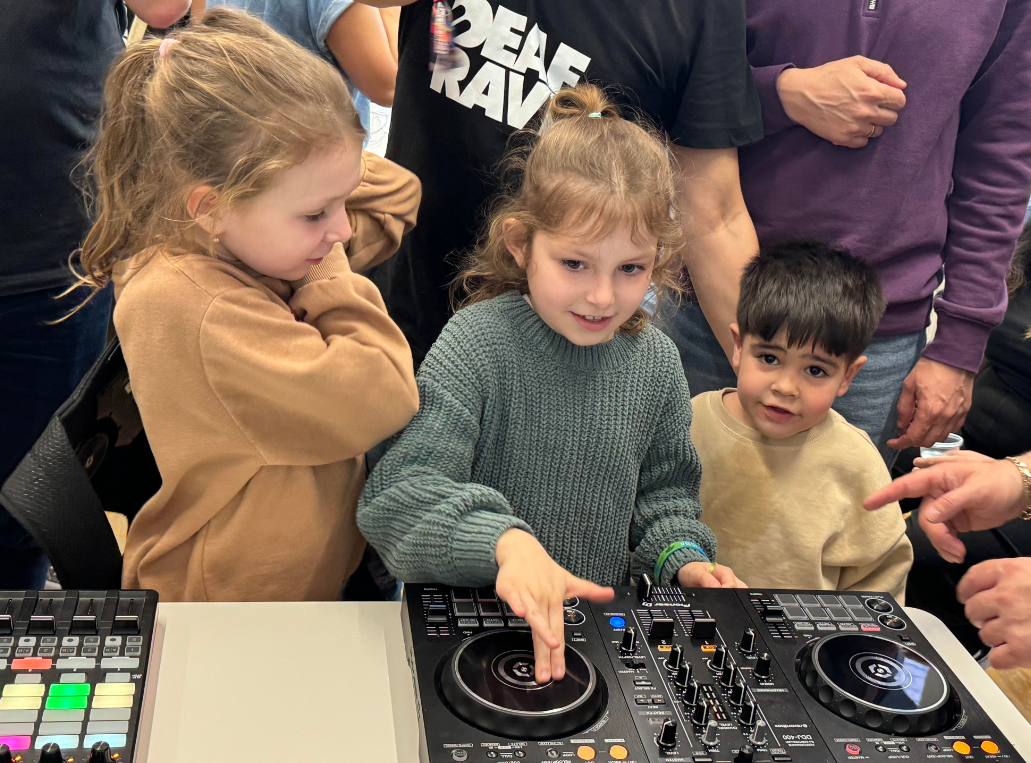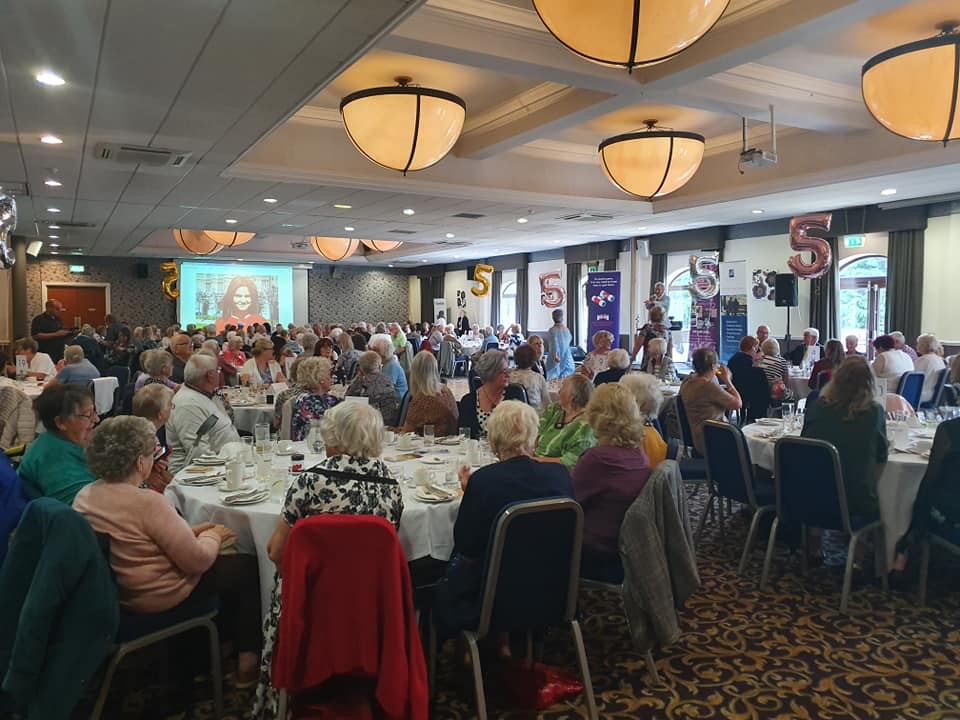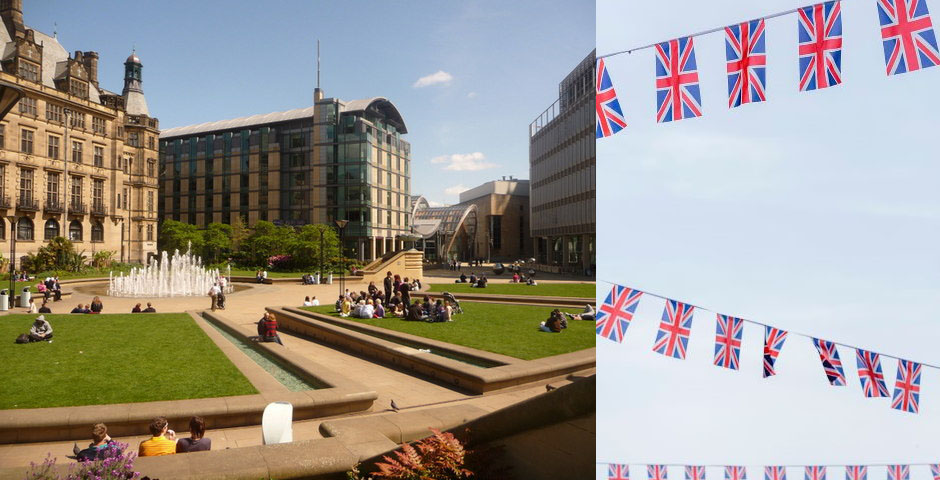According to a National Deaf Children’s Society report in 2023, 77% of Deaf school-aged children in the UK are in mainstream schools with UK Charity Feel the Music stating that d/Deaf children are often removed from mainstream music lessons due to a lack of resources for teachers to teach them.
The term d/Deaf refers to people with either partial hearing loss (lower case d) or with a complete inability to hear since birth or pre-speech (capital D).
Troi Lee, the founder and Artistic Director of Deaf Rave combats this with his outreach programmes of DJ workshops for Deaf children in mainstream and Deaf schools.
He says: “The key is music lessons as there are some schools that do exclude Deaf children from learning music. It’s purely because the government wants Deaf children to focus on English and Maths but speaking as a Deaf person that’s our weakness.
“What I’m trying to do, as we speak, is to change that mindset to promote that every Deaf child has the right to learn whatever subject they want, and music should be one of them.”
Music festival and venue accessibility has blown up in the last three years, the DJ known as ‘DJ Chinaman’ explains, which has worked in the company’s favour.
He says: “Our specialist UK talents love doing this to inspire the younger generation. If Deaf people can do it, they can do it. We want to champion our Deaf Rave collective as great role models.
“I want to motivate as many Deaf people in what they do and keep inspiring them, whether it’s music or education. We just keep pushing because the majority of us have a hard life. It’s always a problem one after the other. It doesn’t go away.”
The founder explains that it is vitally important that Deaf people keep informing whoever they’re communicating with, their communication preferences.
He says: “Education 20 years ago didn’t have that in place but nowadays it’s much better. I’m 50 years old now and I’m the only one out of my siblings that never went to university. The reason why I didn’t go was because I couldn’t process information in education wherever I was. So you can imagine all those Deaf people that missed out on all that information.
“Education is the key to the whole story. Now my mission goal is to try and get as many Deaf schools to teach DJing workshops. DJing is a very unique and technical skill but for d/Deaf people that don’t want to rely on the ears, we can rely on the eyes. DJing is perfect because it’s all visuals.”
Despite having never attended University, Mr Lee is being awarded an honorary masters degree at Falmouth University which the DJ with a career spanning 20 years will be picking up in July.

He says: “The hearing aid technology has definitely improved. I’ve always spoken, but that’s only because my mum was my speech therapist from day one.
“I had to practise speech every day because she was worried about how I would communicate when I get older. I’ll never forget those days, I have to thank my mum for lip reading and pronouncing the words over and over. It was very important for me growing up so that I can communicate now.”
Mr Lee explains that people cannot expect everyone to have the same level of Deafness but a lot of the cochlear implant generation can talk and hear music.
He says: “The problem is that Deaf people are a hard to reach community. We’re very isolated. A lot of them, especially the cochlear implant users, are not really sure of their Deaf identity.
“Growing up the majority went to Deaf schools and colleges, and Deaf pubs and clubs. It was all vibrant back in the day. Now most of them are shut down and all the Deaf children are in the mainstream schools. So it’s just a question for them to find their Deaf identity until Deaf Rave finds them.”
21-year-old Tom Warnke was born Deaf but is fully oral due to his cochlear implants and speech therapy when he was younger and attended a mainstream school in Macclesfield where he is from. As part of the cochlear implant generation, Tom shared the impact of music on helping him with speech therapy.
According to Music and the Deaf, a UK charity dedicated to enabling people with hearing loss to access music, there are around 45,000 d/Deaf children living in the country with very few having access to any kind of musical education.
Teacher of the Deaf at Lower Meadow Primary school in Sheffield, which is equipped with its own ‘Hearing Impaired Unit’, Linette France says that all staff are included for music and that as a whole many of their Deaf children enjoy music.
The integrated resource coordinator, Ms France says: “We have fantastic signers and they translate the music but it’s tricky because sometimes when you sign lyrics, you might not get the correct words with the signing because, for example, you can have three signs for one word. So, we have to tread carefully with the lyrics of the words to make sure we’ve got the content of the sign language correct.”
Lower Meadow Primary principal, Jane Dawtry says: “We’re focused quite heavily on making sure that the children are completely inclusive in the other subjects. Music is one of those ones where we are continuing to develop on that.”
For more about Deaf Rave see the Netflix documentary ‘Turn Up The Bass’ on YouTube.




